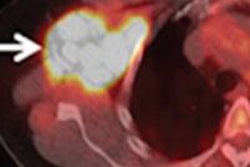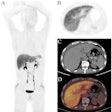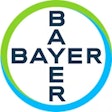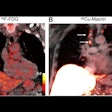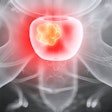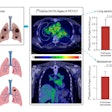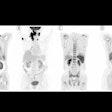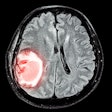Thursday, December 3 | 11:00 a.m.-11:10 a.m. | SSQ02-04 | Room S502AB
In this presentation, a group from Washington University in St. Louis will detail the benefits of perfusion PET/MRI for comprehensive myocardial ischemic evaluation.PET/MRI offers potentially shorter scan times than SPECT, less radiation dose, absolute myocardial blood flow quantification, and internal validation between PET and MRI findings, according to lead author Dr. Amir Durrani and colleagues.
The researchers sought to optimize a protocol for comprehensive cardiac PET/MRI stress perfusion and compare its diagnostic accuracy for coronary artery disease with that of gated SPECT myocardial perfusion imaging (MPI).
The study included 15 patients with a reversible myocardial perfusion defect as determined by gated SPECT MPI who were scheduled for coronary angiography.
For their stress test, the subjects received the vasodilator regadenoson, followed by simultaneous nitrogen-13 ammonia PET and gadolinium-based MR perfusion imaging. The procedure was repeated at rest.
Ammonia-PET/MRI demonstrated excellent agreement with coronary angiographic findings and had better diagnostic accuracy than gated SPECT MPI, the researchers concluded.







